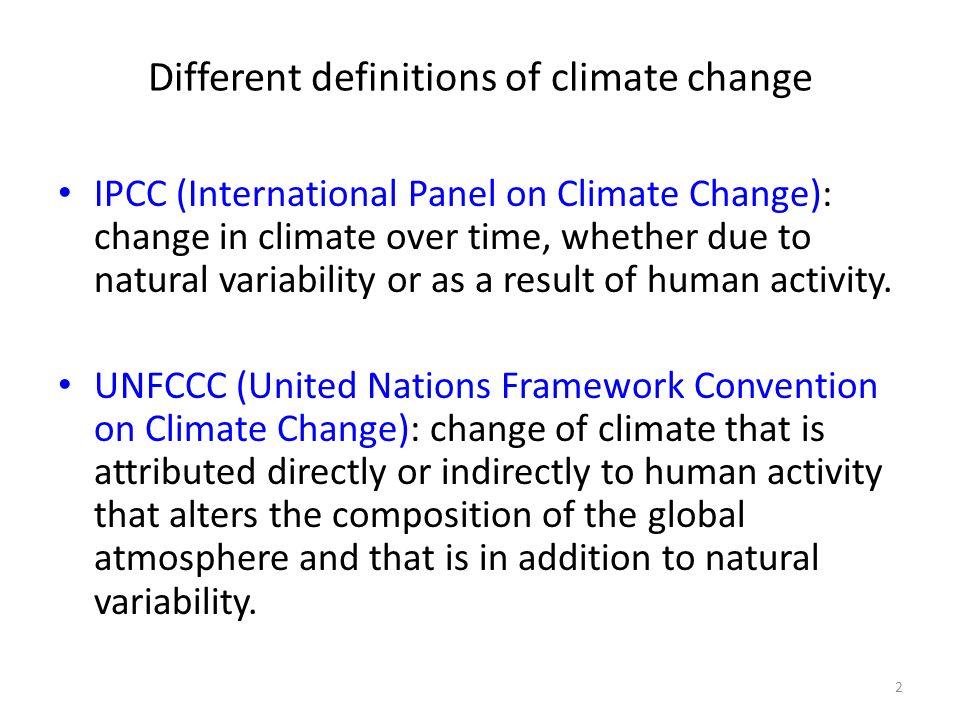
Understanding how the government addresses climate change is essential in order to combat it. The United States is an important nation and the federal government's actions can help accelerate global action. However, there are a number of challenges to implementing this approach at home.
The federal government has implemented several policies in order to curb emissions from all sectors of our economy to combat climate changing. These include the Clean Air Act which requires the Environmental Protection Agency (EPA) to partner with states in reducing greenhouse gas emissions. Other laws require that the Department of Energy establish energy efficiency standards, and partner with private companies in order to develop clean energy technologies.

Additionally, the Biden administration has adopted a "whole-of-government" approach to combating climate change, which includes a partnership with state and local governments. It is also working to reduce emissions from all major sectors, including transportation, industry, and electricity generation.
Many towns and cities around the country are taking part in this initiative. Some are already working to reduce their carbon emission. Others are now focusing on adaptation, such as the development of heat-resistant streets and improved water storage. Communities have the ability to plan for higher temperatures and help prevent disasters such floods.
Many countries around the globe are working together to fight climate change. South Korea and Japan have set new targets to lower their carbon emissions. While most countries are determined to achieve net-zero emission by 2050, some countries are increasing their ambition.
The climate change impacts are highly vulnerable for a large part of the world’s population. People from the Pacific Islands are experiencing higher temperatures and sea-level rise. Indigenous Peoples are at the forefront of fighting against the fossil fuel industries. These communities are also at the forefront of fighting deforestation. It is a critical time to address climate changes, which are affecting every part of the world.

Climate change is a growing danger to public health as well as the environment. It also poses a threat the economy. It can also cause conflict between countries over water supply. The United States must act now if it wants to prevent global warming exceeding two degrees Celsius.
President Joe Biden has led the effort to reestablish the United States' leadership in combating climate change. An executive order issued by the President earlier this year called on the Administration to reduce its domestic greenhouse gas emission by 50-52%, compared with 2005 levels, by 2030. He also encouraged Congress's action to address the climate crisis. Biden has appointed former governors as his cabinet members and enlisted the support of the entire government to help him.
Despite the obstacles in implementing policies domestically, the government is making significant progress. The Biden administration, for example, has made significant investments in clean energy. It is also committed to meeting half of the country's greenhouse gases reduction goals by the end of this decade. The administration is also open to a partnership between the private sector, state and local government.
FAQ
What are the most effective solutions for climate change?
Climate change is a pressing issue that requires urgent attention from citizens, governments, businesses, as well as citizens. A disrupted climate system is evident by rising temperatures, extreme weather events and increased sea levels. Numerous solutions have been suggested to deal with this phenomenon. They include technological solutions as well as behavioral changes and geoengineering.
Technological Solutions: There are many technological solutions that can be used to combat climate change. These include renewable energy sources such as solar and wind power which provide reliable sources of clean energy with minimal side effects on the environment. Electric cars powered entirely by renewable energy could replace petrol vehicles and significantly reduce pollution. Other technological solutions include projects to increase carbon sequestration within trees and soil, as well coastal protection systems that protect vulnerable places from rising oceans.
Simple behavioral changes can help reduce emissions and limit future climate disruption. For example, local production of goods and shorter supply chains can help reduce the emissions associated with transport costs. By using active or public transportation to transport your goods, you optimize your use of resources and bring down costs and air pollution. Also, insulation can be more cost-effective and help reduce the dependence on gas boilers in heating your home.
Geo-engineering (GEO): This involves large-scale interventions into natural systems that may be too risky because of potentially unforeseeable consequences.
The effectiveness of these solutions depends on how committed producers are to investing in green alternatives. At the moment, electric Cars can be more expensive than petrol-powered versions. However, market forces that cannot guarantee their utility over the long term try to increase consumer awareness about their efficiency. This is why mandated alternative solutions via policy measures is one way forward. However regulatory bodies need to be willing to engage further players. While nontechnological solutions may work at one level, solving global warming must be tackled by all parties.
What are the implications of climate change for the environment and society?
The environment and society are both affected by climate change. Climate change will have many impacts on the environment. These changes can have grave consequences for human population, increasing instability and inflicting insect-borne disease and poverty on a large scale, as well as altering migration patterns and destroying important habitats.
Climate change is already having a wide range of sweeping effects on the environment and societies all over the world. As global temperatures rise, this trend is likely to intensify in the near term.
One of the most prevalent effects of climate changes worldwide is the rise of ocean levels as a result of melting ice cap. This results in coastal erosion and increased flooding risks for coastal communities. Saltwater intrusion is also a problem, and can negatively impact freshwater supplies along the coasts of many countries.
Many countries are experiencing extreme weather events, such as droughts or heatwaves as a result climate change. These extreme weather events can cause widespread destruction of homes and businesses. In some cases, they lead to the displacement or relocation or even complete destruction of entire towns. Additionally, severe storms pose additional risks due to flooding or landlides that can increase damage to infrastructure such roads and railways.
Climate change is also causing wildfires to become more frequent than ever before. This can have devastating effects on habitats as well as people living near them.
Such drastic changes in living conditions often result in displacement or even refugee crises when people move away from their homes either voluntarily or involuntarily because their towns have become too dangerous or no longer habitable given their altered climate conditions against which they cannot cope adequately.
Dust storms are also increasing in severity worldwide due to increased aridity. This makes it more difficult for asthma sufferers and other respiratory conditions. In addition, pest infestations are expected to increase significantly linked with higher temperature extremes - a phenomenon known as 'greenhouse bug' - leading to further damage to agricultural production that further affects global food insecurity numbers as fewer crops become available at worse nutritional qualities potentially bringing additional hardships upon marginalized populations already barely able make ends meet otherwise.
What is the role of the energy sector in climate change and how can it be addressed?
The role of the energy sector in climate change is immense. The burning of fossil fuels is a primary source of global warming, caused by releasing carbon dioxide into the atmosphere, trapping heat, and leading to an increase in average temperatures on Earth.
To address this, energy sources must move away from carbon-emitting sources, such as coal and natural gas, and instead transition towards renewable energy sources like solar, wind, and geothermal. This change can be made by government policy, incentives, and investments in innovative technology, such as hydrogen fuel cells. Businesses and households can both reduce their carbon footprints while also lowering their electricity bills by investing into infrastructure that supports this use of renewable resources.
Other ways include switching from polluting transportation options such as petrol-fueled cars to moving towards electric or public transport. It is possible for governments to support battery technologies research and encourage people to use cleaner transportation.
In order to reduce their carbon footprint, companies need to adopt green business methods. These include installing better insulation systems in offices and creating energy efficiency plans for manufacturing facilities. This can drastically reduce operational expenses while also improving environmental performance metrics.
To be effective, these initiatives need to be supported at both the company and government levels. For example, increasing taxes on polluting products encourages people to change their ways without making them more financially competitive with polluters. Providing vouchers or subsidies to low-carbon products will help create a market that supports sustainability efforts. In conclusion, tackling climate change requires a massive effort from both private industry and private citizens alike; switching to clean energy sources and adopting green practices are key aspects of fighting global warming which will positively affect generations now and are yet to come.
What are the international efforts currently being made to address climate change
The international effort to tackle climate change has reached a new level of unity and momentum. Countries from all over the globe are increasingly coming together to find ways to reduce their emissions, increase resilience against impacts and invest in renewable energy.
The Paris Agreement, which has galvanized global action and provides a framework for countries to establish voluntary targets to reduce their emissions, serves as a framework. The UN Framework Convention on Climate Change, (UNFCCC), provides political guidance and pilots new initiatives like carbon market mechanisms.
Other regions are seeing progress. The European Green Deal is a comprehensive legislation package that seeks to create a European economy with sustainability as its core. Countries on the African continent also have committed to The African Renewable Energy Initiative, which aims increase Africa's participation in global renewable energy production.
There are many sectors and industries that are taking action in addition to policy development. Cities are making active transitions toward sustainable public transport systems, while society overall is adopting more sustainable lifestyles. Businesses are innovating technologies which reduce emissions, while investors move their capital from fossil fuels to renewables.
The OECD committee represents wealthy countries and has established common standards for reporting national climate action through the Common Reporting Framework, also called the 2021 Guidelines.
All these efforts are a sign of the unprecedented importance given to climate action. If we are to meet the Climate goals as set out by science and enshrined into international law, governments, civil society, and private sector stakeholders must all continue to build on this momentum.
How can climate change be mitigated or reduced in its impact?
There are many steps that can be taken in order to reduce and mitigate climate change's effects. There are many ways to reduce greenhouse gas emissions. These include using more sustainable energy and alternative sources of power. Protecting forests and wilderness habitats. Investing in sustainable transport systems. Strengthening early warning systems for natural disasters. Creating a research program about the impacts of climate change on biodiversity. Investing in green technologies like solar panels and wind turbines. Developing sustainable consumption habits and implementing appropriate environmental regulations in all areas of society. It is important to increase public awareness about climate change as it makes people feel accountable for their actions.
Statistics
- The 10 countries with the largest emissions contribute 68 percent. (un.org)
- features Earth's average surface temperature in 2022 tied with 2015 as the fifth warmest on record, according to an analysis by NASA. (climate.nasa.gov)
- Indigenous peoples and local communities receive less than 1% of all climate funding despite scoring wins for people and nature Africa's broken food markets must be fixed to tackle hunger (climatechangenews.com)
- features Earth's average surface temperature in 2022 tied with 2015 as the fifth warmest on record, according to an analysis by NASA. (climate.nasa.gov)
- This source accounts for about 10% of all the water that enters this highly productive farmland, including rivers and rain. (climate.nasa.gov)
External Links
How To
How to incorporate sustainable practices into your daily life to combat climate change
Reducing your consumption of energy and food is one way you can integrate sustainable practices into your day. Try shopping secondhand, borrowing from family and friends, or buying new items every other day. In order to reduce the amount methane in the atmosphere, it is a good idea to eat vegetarian meals only once or twice per week. Also, conserve energy by turning off all lights in a room when you leave it.
A second way to combat climate change is to reduce emissions from transport sources such as cars and planes by carpooling or using public transit instead. Solar panels can also be used as a renewable power source to produce electricity at home, replacing traditional fossil fuels. To make climate change action effective, it is important to support policies that promote clean air regulations. In conclusion, it is extremely beneficial to work with others on issues like ending plastic pollution or deforestation. It creates more citizens who are aware and will act upon that knowledge.